KEY POINTS
- Ghana invests $40 million in eco-friendly tourism infrastructure and services through the Tourism Development Project.
- Community-based tourism empowers locals, creates jobs, and preserves Ghana’s rich cultural heritage through homestays, workshops, and traditional festivals.
- Conservation efforts in national parks protect biodiversity and attract eco-conscious travelers while supporting sustainable local livelihoods.
Tourism is one of the fastest-growing sectors in Ghana, contributing approximately $2.5 billion annually to the nation’s economy and supporting nearly 300,000 jobs (Bank of Ghana, 2019).
With an ambitious goal to double tourism revenue to $5 billion by 2025, Ghana recognizes the importance of sustainable tourism as a key pillar in achieving this growth while protecting its natural and cultural heritage.
By implementing various initiatives and partnering with local communities and the private sector, Ghana is positioning itself as a leader in sustainable tourism in Africa (World Bank, 2018).
Government initiatives driving sustainable tourism
The Ghanaian government has taken proactive steps to foster sustainable tourism through strategic projects and plans. One notable initiative is the Ghana Tourism Development Project, a $40 million investment aimed at enhancing tourism infrastructure and services.
The project seeks to improve accessibility to key attractions, train local stakeholders, and create an enabling environment for private sector investments in eco-tourism.
In addition, the Sustainable Tourism Development Plan, a 10-year roadmap, focuses on eco-tourism, cultural heritage preservation, and community-based tourism.
This comprehensive plan aligns with global sustainable development goals, emphasizing environmental conservation, cultural authenticity, and economic inclusivity.
By prioritizing these areas, the government aims to create a tourism model that benefits both visitors and local communities while ensuring long-term viability.
Private sector contributions to sustainability
The private sector plays a critical role in advancing Ghana’s sustainable tourism agenda. A growing number of eco-lodges and environmentally-friendly accommodations have emerged across the country.
These establishments, such as the Mole Motel near Mole National Park, integrate renewable energy, water conservation, and waste management practices into their operations, providing tourists with eco-conscious options.

Community-based tourism projects have also gained traction, offering authentic experiences like village stays and homestays. These initiatives empower local communities by creating jobs, generating income, and preserving cultural practices.
For instance, guided tours of traditional crafts workshops not only showcase Ghanaian artistry but also provide a direct source of revenue for artisans.
Ecotourism and conservation efforts
Ghana is home to stunning natural attractions that serve as pillars of its ecotourism offerings.
Kakum National Park, renowned for its diverse wildlife and canopy walkways, provides visitors with an immersive experience of Ghana’s tropical rainforest.
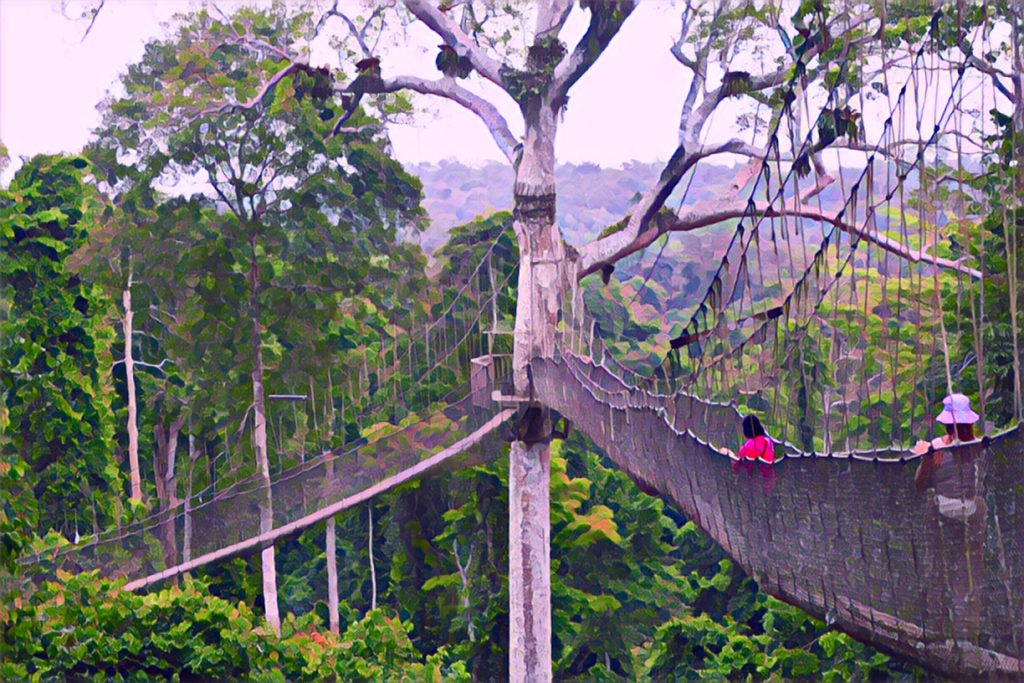
Similarly, Mole National Park, the largest national park in the country, offers unparalleled opportunities to observe elephants, antelopes, and other wildlife in their natural habitat.
To ensure the sustainability of these resources, conservation efforts have been intensified. The Ghana Wildlife Division leads various initiatives to protect biodiversity and mitigate human-wildlife conflicts.
Community-led conservation groups, such as the “Friends of Kakum,” actively participate in safeguarding the parks while promoting eco-tourism.
These efforts not only preserve Ghana’s rich biodiversity but also enhance its appeal to environmentally conscious travelers.
Celebrating cultural heritage through tourism
Ghana’s cultural heritage is a cornerstone of its tourism industry. The country’s vibrant festivals, such as the Akwasidae Festival, offer tourists a glimpse into traditional customs, music, and dance.
Additionally, historic landmarks like the Cape Coast Castle and Elmina Castle, which played significant roles in the transatlantic slave trade, attract visitors interested in history and heritage.
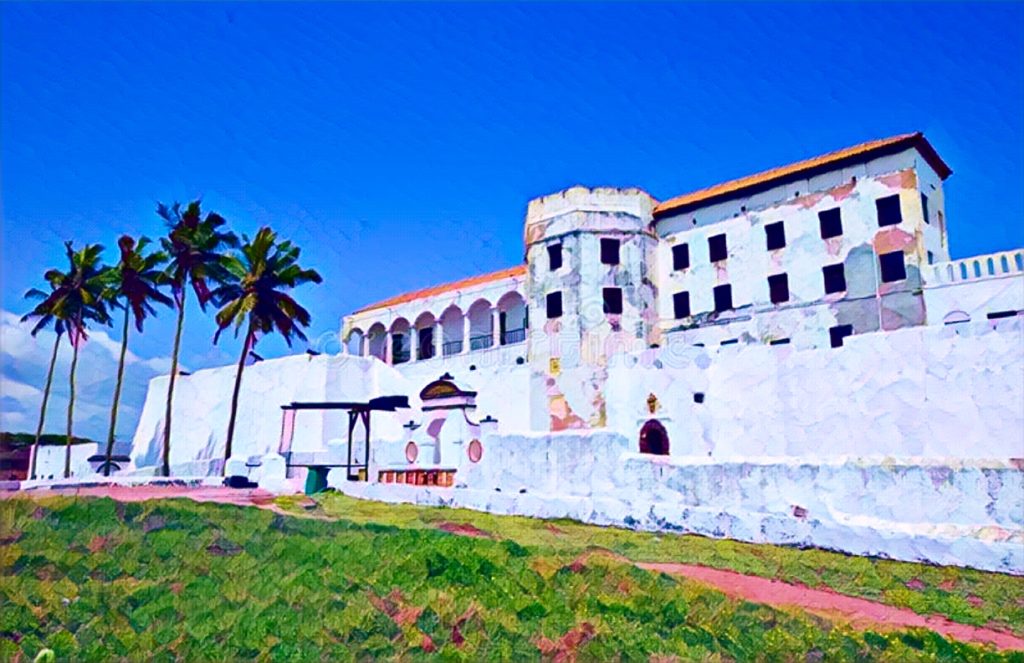
Community-based tourism initiatives further enrich cultural experiences. Village tours and homestays provide opportunities for travelers to engage with local communities, learn about traditional lifestyles, and participate in daily activities.
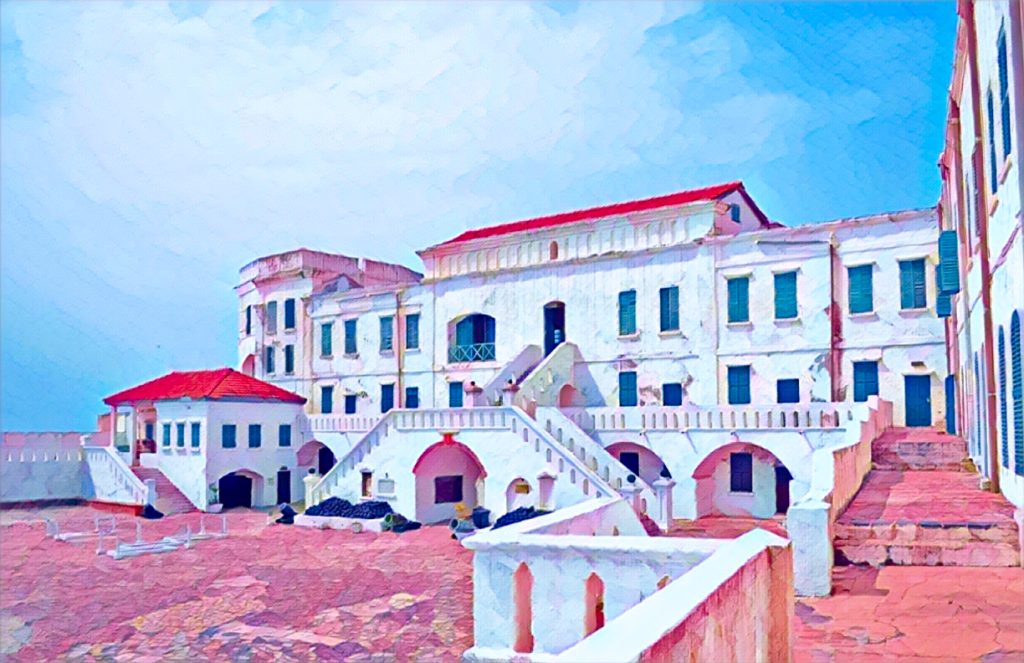
Workshops on traditional crafts, such as kente weaving and bead-making, not only preserve these art forms but also generate income for local artisans, creating a win-win scenario for cultural preservation and economic development.
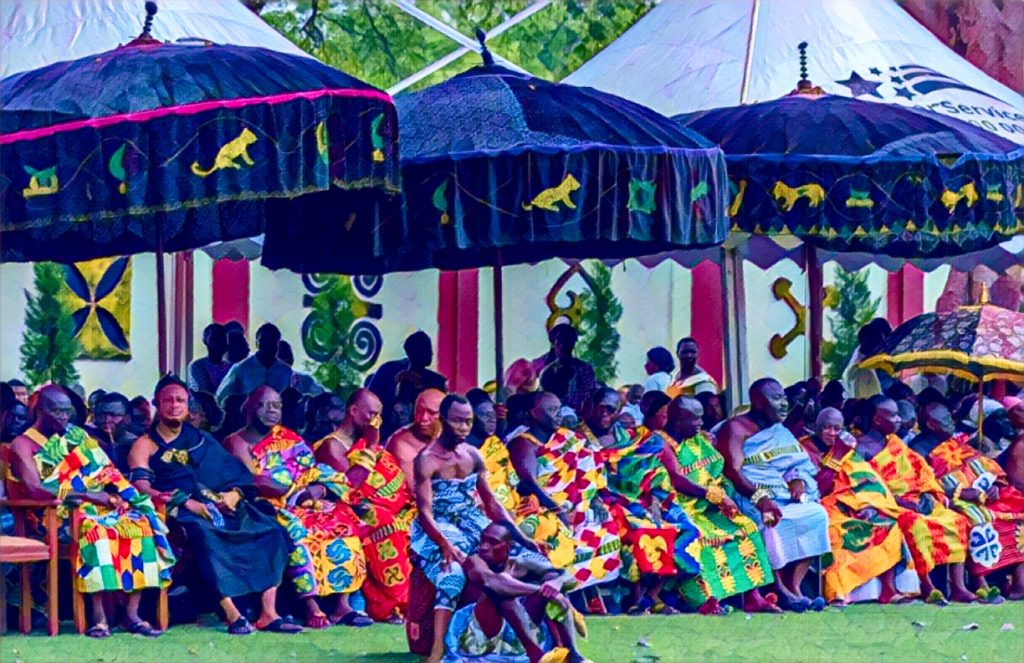
Opportunities and challenges
The promotion of sustainable tourism presents numerous opportunities for Ghana. It serves as a powerful tool for job creation, particularly in rural areas where tourism can provide alternative livelihoods.
Additionally, sustainable tourism fosters environmental conservation by incentivizing the protection of natural resources. Cultural preservation is another significant benefit, as tourism revenue supports the maintenance of historic sites and traditional practices (World Bank, 2018).
However, challenges remain. Limited infrastructure in remote areas hinders access to some of Ghana’s most promising attractions. Competition from other African destinations also poses a challenge, requiring Ghana to differentiate itself through unique and high-quality offerings. Balancing economic growth with environmental and social responsibility is a delicate task, necessitating continuous collaboration among stakeholders (World Bank).
Ghana’s commitment to sustainable tourism reflects its vision of balancing economic growth with environmental stewardship and social inclusivity (UNDP,2024).
Through government initiatives, private sector contributions, and community-based efforts, the country is paving the way for a tourism industry that benefits all stakeholders.
As Ghana works toward its goal of increasing tourism revenue to $5 billion by 2025, its dedication to sustainability ensures a promising future for both the industry and the nation’s natural and cultural treasures.


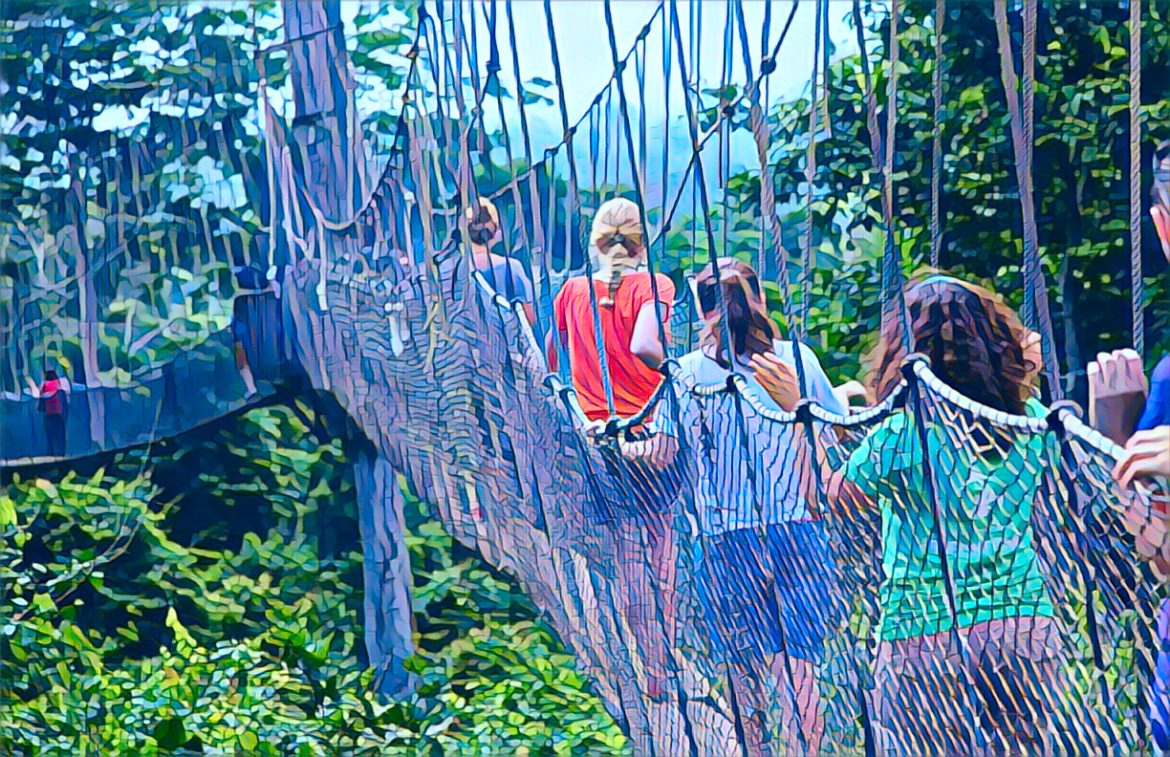


30 comments
[…] infrastructure and services under the Tourism Development Project underscores this vision The Ghana Sentinel. Plus, the Ghana Tourism Authority (GTA) officially aims to make Ghana the leading sustainable […]
I am constantly invstigating online for tips that can aid me. Thx!
Well I sincerely enjoyed studying it. This article procured by you is very effective for good planning.
3x1sa3
The very crux of your writing while sounding agreeable initially, did not work very well with me after some time. Somewhere within the sentences you managed to make me a believer unfortunately just for a while. I however have a problem with your jumps in assumptions and you would do nicely to fill in those gaps. When you can accomplish that, I will certainly end up being amazed.
Hey very nice site!! Man .. Beautiful .. Amazing .. I will bookmark your website and take the feeds also…I am happy to find numerous useful information here in the post, we need develop more techniques in this regard, thanks for sharing. . . . . .
4tlctg
e666uh
I appreciate, cause I found exactly what I was looking for. You have ended my four day long hunt! God Bless you man. Have a nice day. Bye
Toàn bộ hệ thống được vận hành dưới tiêu chuẩn bảo mật SSL 128-bit, giúp mã hóa mọi dữ liệu giao dịch và thông tin cá nhân. Tất cả các thao tác như đăng nhập, rút tiền hay xác minh đều được mã hóa ở cấp độ cao nhằm loại bỏ nguy cơ rò rỉ dữ liệu. nổ hũ 66b còn hợp tác với các đơn vị kiểm toán độc lập để định kỳ rà soát hệ thống, đảm bảo tuân thủ đúng các yêu cầu kỹ thuật và pháp lý quốc tế.
xn88 app Tuy chỉ mới xuất hiện trên bản đồ cá cược, nhưng nơi đây đã đặt ra sứ mệnh táo bạo: “Mang đến trải nghiệm cá cược công bằng, hiện đại và đậm chất cá nhân hóa cho người chơi toàn cầu”.
tải 66b Một trong những ưu điểm lớn nhất của nền tảng là giao dịch tiện lợi. Nhà cái luôn ưu tiên tạo điều kiện tốt nhất để có thể thực hiện các giao dịch một cách dễ dàng và nhanh chóng, đảm bảo sự thoải mái trải nghiệm mượt mà khi tham gia cá cược trực tuyến.
Heya! I’m at work browsing your blog from my new iphone 3gs! Just wanted to say I love reading through your blog and look forward to all your posts! Keep up the excellent work!
nhà cái 188v Sảnh game xổ số, lô đề tại đây nổi tiếng với độ uy tín và trả thưởng sòng phẳng, xanh chín. Do vậy mọi người hoàn toàn có thể yên tâm tin tưởng tham gia cá cược thỏa mãn niềm đam mê của mình. Đồng thời tất cả các game đều được chúng tôi sử dụng thuật toán RNG ngẫu nhiên đảm bảo tính công bằng 100%.
Some truly nice stuff on this web site, I enjoy it.
Hier werden sehr oft Freispiele vergeben, nicht nur für neue sondern auch für Bestandskunden. Sind die Free Spins zum Beispiel aus einer
Verlosung oder einem Gewinn, so kann es sein, dass diese wie normale Freispiele an den Automaten gelten. Sind
die Casino Freispiele an Bedingungen geknüpft, wenn mit diesen ein Jackpot gewonnen wird.
Ihr könnt dieses Gratis-Guthaben auf bestimmte Casinospiele oder Wetten verwenden und
so den Bonus ohne Risiko testen. Ein Online Casino Bonus ohne Einzahlung (auch No Deposit Bonus) wird
sofort nach der Registrierung gutgeschrieben, ohne dass eine Echtgeld-Einzahlung erforderlich ist.
Fantastische Neuigkeiten für alle Deutsche Spieler, die Freispiele lieben! ✅ Wer einen Bonus
erhalten kann – Einige Boni ohne Einzahlung sind z.
Bevor Sie das Gratis-Spielgeld oder die daraus erzielten Gewinne auszahlen lassen können,
müssen Sie den Bonusbetrag eine bestimmte Anzahl
von Malen umsetzen.
Für die erste Einzahlung gibt’s immerhin 200 Freispiele bei Starburst als Extra obendrauf.
Dort wird meistens ausdrücklich darauf hingewiesen, für welche Slots die Freispiele
sind. Konkret bedeutet dies, dass die Gewinne sofort als Echtgeld gutgeschrieben werden, ohne Wenn
und Aber.
References:
https://online-spielhallen.de/powerup-casino-bonus-code-dein-kompletter-guide-und-wie-du-das-beste-herausholst/
As long as they meet these requirements, they can offer sports betting to Australians.
Being able to gamble and place bets online or via your mobile has contributed hugely to the increase in popularity.
Furthermore, all our listed sites feature the best
encryption software available so you can gamble knowing your personal information is safe.
60+ years of combined professional experience between all our team members.
PayPal is, without a doubt, one of the most widely used payment methods by both individuals and businesses to send and receive
money securely.
When playing with real money, choose medium or high variance pokies.
Reload bonus is not really a type of bonus fund but rather a group of bonuses that are meant for existing
players. You shouldn’t settle for Australian online casino sites that need 3 days to approve a payout
request.
References:
https://blackcoin.co/best-no-deposit-bonuses-2025-the-ultimate-guide/
However, players should know the potential risks and choose reputable,
licensed casinos. Remember, responsible gambling and choosing licensed,
reputable casinos are key to a safe and enjoyable experience.
These platforms offer the convenience of playing anytime, anywhere, with advantages like exclusive bonuses and optimised interfaces.
By following the expert advice mentioned below, you can improve your chances of success and make the most of your online casino experience.
PayPal casinos continue to increase in popularity for Australian players due to their
fast transactions, high security standards, and ease of use
Since it’s part of a resort with restaurants, bars, and a hotel, I often find myself spending the
whole evening there just taking in the atmosphere. No one
is a fan of losing streaks, which is why it’s sometimes better just to walk away than to keep hoping that luck will turn sides.
Playing should be entertaining, and the only way to keep it so is to play sober.
References:
https://blackcoin.co/pure-casino-official-site-review/
online casino mit paypal einzahlung
References:
play.kkk24.kr
online casino paypal
References:
https://carrefourtalents.com/employeur/best-online-sports-betting-sites-and-sportsbooks-in-usa-2025/
Do you have a spam problem on this website; I also am a blogger, and I was wanting to know your situation; we have created some nice practices and we are looking to trade solutions with others, be sure to shoot me an email if interested.
It’s going to be end of mine day, however before end I am reading this fantastic paragraph to increase my know-how.
I always used to read piece of writing in news papers but now as I am a user of net therefore from now I am
using net for articles or reviews, thanks to web.
Excellent blog you have here but I was curious if you knew
of any user discussion forums that cover the same topics talked about in this article?
I’d really like to be a part of community where I can get opinions from other knowledgeable people that share the same interest.
If you have any recommendations, please let me
know. Cheers!
I have recently started a site, the info you offer on this web site has helped me greatly. Thanks for all of your time & work. “Quit worrying about your health. It’ll go away.” by Robert Orben.
Amazing! This blog looks just like my old one! It’s on a totally different topic but it has pretty much the same layout and design. Excellent choice of colors!
I have been browsing online greater than three hours these days, yet I never discovered any attention-grabbing article like yours. It is pretty worth enough for me. In my opinion, if all site owners and bloggers made just right content material as you did, the net will probably be much more useful than ever before.
I believe other website proprietors should take this website as an model, very clean and wonderful user genial pattern.
great post.Never knew this, thankyou for letting me know.
Yay google is my queen aided me to find this great site! .